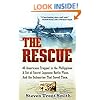
Railway Man
and over one million other books are available for Amazon Kindle. Learn more


Flip to back
Flip to front

The Railway Man: A POW's Searing Account of War, Brutality and Forgiveness Paperback – April 11, 2014
See all 24 formats and editions
Hide other formats and editions
| Amazon Price | New from | Used from |
|
Audio, Cassette, Audiobook
"Please retry"
|
—
|
— | $49.99 |

$9.65
FREE Shipping on orders over $35.
Only 7 left in stock (more on the way).
Ships from and sold by Amazon.com.
Gift-wrap available.
NO_CONTENT_IN_FEATURE
Start reading Railway Man on your Kindle in under a minute.
Don't have a Kindle? Get your Kindle here, or download a FREE Kindle Reading App.
Don't have a Kindle? Get your Kindle here, or download a FREE Kindle Reading App.
Best Books of the Month
Want to know our Editors' picks for the best books of the month? Browse Best Books of the Month, featuring our favorite new books in more than a dozen categories.
Want to know our Editors' picks for the best books of the month? Browse Best Books of the Month, featuring our favorite new books in more than a dozen categories.
Product Details
Would you like to update product info or give feedback on images?.
|
Editorial Reviews
Amazon.com Review
Eric Lomax, a British army soldier, was captured by the Japanese during the Singapore campaign of 1942. A railroad buff since a child, he took strange pleasure in his work as a POW on the Burma-Siam Railroad, which was later the subject of the film Bridge Over the River Kwai. When his captors discovered his detailed drawings of the railway, he was suspected as a spy and tortured for years. Fifty years later he discovered that the interpreter during his tortures was still alive. The two arranged a meeting and Lomax forgave him. Here is the exciting, moving and truthful account.
--This text refers to an out of print or unavailable edition of this title.
From Publishers Weekly
Lomax, a British Army signals officer, was captured by the victorious Japanese during the Singapore campaign in 1942. Fascinated by railroads ever since his childhood in Edinburgh, he took what pleasure he could in the irony of his slave-labor assignment as a POW: the construction of the Burma-Siam Railroad, made famous later in the David Lean film Bridge over the River Kwai. When guards discovered his lovingly detailed map of the right-of-way, Lomax was turned over to the Japanese secret police as a suspected spy. In the subsequent torture sessions, the interpreter, a young man named Nagase Takeshi, played a prominent role in the effort to break him down. Half a century later, by what he calls "an incredible and precious coincidence," Lomax learned that Takeshi was still living. A meeting of reconciliation at the Kwai River, which Lomax at first suspected was a fraudulent publicity stunt, was arranged. His graceful and restrained account of how the two men eventually became "blood-brothers" after Lomax granted Takeshi full forgiveness is deeply moving.
Copyright 1995 Reed Business Information, Inc. --This text refers to an out of print or unavailable edition of this title.
Copyright 1995 Reed Business Information, Inc. --This text refers to an out of print or unavailable edition of this title.
More About the Author
Discover books, learn about writers, read author blogs, and more.
Customer Reviews
Most Helpful Customer Reviews
60 of 63 people found the following review helpful
By
A Customer
on October 17, 1996
Format: Hardcover
Comment
Sending feedback...
In this work of Eric Lomax, one finds direct contrasts between
brutality and meekness, revenge and forgiveness. The author
was a signals officer in the Pacific Theater of the war and
was captured after the fall of Singapore. He was then sent to
the POW camps involved in the construction of the then Siam-
Burma railway (Remember the "Bridge Over the River Kwai"?).
There he had first-hand experience of the Japanese's brutal
treatment of POWs, himself included. He never forgot the face
of the Japanese interpreter accompanying the soldier who beat
him to a pulp. He narrates how he had to cope psychologically
with normal life after the war, how his wartime experiences
kept on haunting him. Coincidentally, he chances upon some
information regarding a Japanese trying to make reparations
for his wartime brutalities, and indeed confirms that this
was his former tormentor. After a lot of soul-searching, he
finally meets the Japanese in a war memorial beside the Kwai
River bridge, and the process of reconciliation and healing
begins. A very touching story of man's capacity to perhaps
not to forget, but yes, to forgive.
brutality and meekness, revenge and forgiveness. The author
was a signals officer in the Pacific Theater of the war and
was captured after the fall of Singapore. He was then sent to
the POW camps involved in the construction of the then Siam-
Burma railway (Remember the "Bridge Over the River Kwai"?).
There he had first-hand experience of the Japanese's brutal
treatment of POWs, himself included. He never forgot the face
of the Japanese interpreter accompanying the soldier who beat
him to a pulp. He narrates how he had to cope psychologically
with normal life after the war, how his wartime experiences
kept on haunting him. Coincidentally, he chances upon some
information regarding a Japanese trying to make reparations
for his wartime brutalities, and indeed confirms that this
was his former tormentor. After a lot of soul-searching, he
finally meets the Japanese in a war memorial beside the Kwai
River bridge, and the process of reconciliation and healing
begins. A very touching story of man's capacity to perhaps
not to forget, but yes, to forgive.
Thank you for your feedback.
If this review is inappropriate, please let us know.
Sorry, we failed to record your vote. Please try again
36 of 36 people found the following review helpful
By
T. J. Martin
on October 12, 2006
Format: Hardcover
Comment
Sending feedback...
I read this book when it was first published about ten years ago and the moving experience has remained with me since I finished the final sentence. It is an incredibly vivid book that you will not be able to put down.
What Eric Lomax went through as a POW, and his eventual reconciliation with one of his torturers 50 years later displays a depth of humanity that is deeply moving.
What Eric Lomax went through as a POW, and his eventual reconciliation with one of his torturers 50 years later displays a depth of humanity that is deeply moving.
Thank you for your feedback.
If this review is inappropriate, please let us know.
Sorry, we failed to record your vote. Please try again
34 of 35 people found the following review helpful
By
A. Whitehead
on August 2, 2010
Format: Paperback
1 Comment
Sending feedback...
In February 1942, the city of Singapore, defended by 80,000 British and Commonwealth troops, surrenders to the Japanese. The loss of Singapore, coupled with the preceding loss of the British warships Repulse and Prince of Wales, is described by Churchill as the darkest British moments of the Second World War, whilst the capitulation of Singapore becomes the British Army's greatest defeat.
Amongst the tens of thousands of British soldiers rounded up and taken into captivity is Lt. Eric Lomax, a Royal Signals officer. Initially, the vast mass of British POWs hugely outnumbers their Japanese captors, leading to a relaxed atmosphere where the British prisoners mostly police themselves. Overconfident, many of the British prisoners began building home-made radios to keep a closer eye on the course of the war. However, as time passes the POWs begin to be dispersed, many being sent to be worked to death on the River Kwae railway as it slowly makes its way across Thailand and into Burma. In these smaller camps, much more aggressively policed by Japanese guards, the prisoners find their confidence and expectation of good treatment rapidly disabused. Lomax's involvement in the construction of clandestine radios leads him to being imprisoned, humiliated, tortured and condemned to a number of horrific prisons in and around Bangkok.
Eventually the war ends and Lomax returns home, but finds that his torture continues. His experiences lead to the breakdown of his first marriage, an estrangement from his father and decades of nightmares and broken sleep patterns.Read more ›
Amongst the tens of thousands of British soldiers rounded up and taken into captivity is Lt. Eric Lomax, a Royal Signals officer. Initially, the vast mass of British POWs hugely outnumbers their Japanese captors, leading to a relaxed atmosphere where the British prisoners mostly police themselves. Overconfident, many of the British prisoners began building home-made radios to keep a closer eye on the course of the war. However, as time passes the POWs begin to be dispersed, many being sent to be worked to death on the River Kwae railway as it slowly makes its way across Thailand and into Burma. In these smaller camps, much more aggressively policed by Japanese guards, the prisoners find their confidence and expectation of good treatment rapidly disabused. Lomax's involvement in the construction of clandestine radios leads him to being imprisoned, humiliated, tortured and condemned to a number of horrific prisons in and around Bangkok.
Eventually the war ends and Lomax returns home, but finds that his torture continues. His experiences lead to the breakdown of his first marriage, an estrangement from his father and decades of nightmares and broken sleep patterns.Read more ›
Thank you for your feedback.
If this review is inappropriate, please let us know.
Sorry, we failed to record your vote. Please try again
22 of 22 people found the following review helpful
By
Stephan H. Small
on April 28, 2003
Format: Hardcover
Comment
Sending feedback...
This is a book that will move you. Eric Lomax is a man of depth, intelligence and keen perception. His writing is vivid, his story one that you can't put down. I strongly urge anyone interested in what the POW experience is like, and anyone interested in a powerful story, to buy and read this book.
Thank you for your feedback.
If this review is inappropriate, please let us know.
Sorry, we failed to record your vote. Please try again
20 of 21 people found the following review helpful
By
Darrel Bristow-Bovey
on September 15, 2000
Format: Paperback
Comment
Sending feedback...
We should be grateful for writers such as Lomax, and for books such as this. Remembering, with careful, understated accuracy, his experiences as a prisoner of war in Kanchanaburi during the infamous construction of the Burma Railway, also known as the "Death Railway", it is an honest and beautifully rendered document of tremendous suffering, tremendous pain and the transcending, liberating power of forgiveness.
It reminds us of a time so recent, yet which seems to long ago, and which can so easily be revisited upon us. It is not a document of Japan-bashing or of bitterness or recrimination. It reminds that we are all capable of reat evil, and all capable of surviving great evil. It reminds us of the contradictory yet parallel strains of goodness and darkness that make us human. I feel like a btter person for having read this book.
It reminds us of a time so recent, yet which seems to long ago, and which can so easily be revisited upon us. It is not a document of Japan-bashing or of bitterness or recrimination. It reminds that we are all capable of reat evil, and all capable of surviving great evil. It reminds us of the contradictory yet parallel strains of goodness and darkness that make us human. I feel like a btter person for having read this book.
Thank you for your feedback.
If this review is inappropriate, please let us know.
Sorry, we failed to record your vote. Please try again
15 of 16 people found the following review helpful
By
Grey Ghost
on October 24, 2003
Format: Audio Cassette
Comment
Sending feedback...
You may think you've read enough harrowing accounts of someone's life as a prisoner of war, but what sets this memoir apart is the resolution of the author's searing memories of one Japanese tormentor in particular, and his life-changing efforts to find and reconnect with that man when both are in their 60s and beyond. Its an incredibly compelling and moving tale, from beginning to end, and beautifully written.
Thank you for your feedback.
If this review is inappropriate, please let us know.
Sorry, we failed to record your vote. Please try again
17 of 20 people found the following review helpful
By
"teencynic"
on September 1, 2001
Format: Paperback
Comment
Sending feedback...
I first heard about Mr. Lomax in the "Guidepost" magazine, and was eleven when I read this "the Railway Man". And I must say, it's a painful read. After reading an eye-witness account of the treatment of the prisonners, "Bridge to the River Kwai" seems so...tame. This is the real stuff.
It's graphic, like when he drescribes the brutal treatment at the hands of the captors, the endless interrogations, being swarmed over by red ants when they were put in cages, and about the man who tortured him all those years.
Then he talks about going back to England, marrying, and then the jolt of his former torturer being alive. And that they met up again, and how he forgave.
I'm surprised it's out of print, and I still think it should be more widely read. The story may be gut-wrenching (in more ways than one), but when he survived it all, one can't help but wonder how, when so many have died along the way.
It's graphic, like when he drescribes the brutal treatment at the hands of the captors, the endless interrogations, being swarmed over by red ants when they were put in cages, and about the man who tortured him all those years.
Then he talks about going back to England, marrying, and then the jolt of his former torturer being alive. And that they met up again, and how he forgave.
I'm surprised it's out of print, and I still think it should be more widely read. The story may be gut-wrenching (in more ways than one), but when he survived it all, one can't help but wonder how, when so many have died along the way.
Thank you for your feedback.
If this review is inappropriate, please let us know.
Sorry, we failed to record your vote. Please try again











